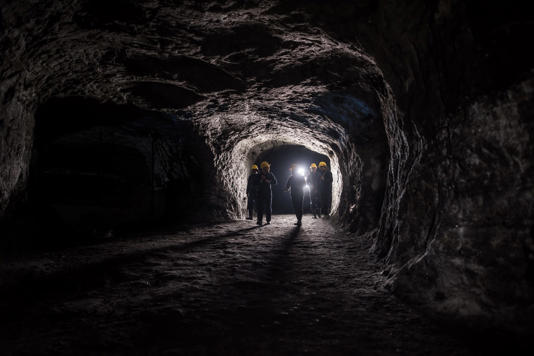The rapid buildout of a clean energy economy is fueling a significant increase in demand for responsibly sourced critical minerals that power everything from consumer electronics to electric vehicle batteries. No one knows that better than Nevada, where there is tremendous investments in the entire “cradle-to-cradle” lithium cycle, from mining to processing to recycling. As leaders at the Department of the Interior, we are focused on supporting a mining industry that is sustainable, responsible and efficient in order to confront the climate crisis with the resources its solutions demand. To do that, we must focus on a more inclusive, productive approach — one that prioritizes engagement with Tribal Nations and local communities in Nevada and across the nation.
In 2023, President Biden’s Interagency Working Group on Mining Regulations, Laws, and Permitting convened federal agencies, industry representatives, interest groups, labor unions, Tribes and others to develop permitting recommendations to reform and improve the way mining is conducted on U.S. public lands. The final recommendations, issued in September 2023, will ensure a more sustainable and responsibly sourced domestic supply of minerals, which are key to meeting the nation’s climate, infrastructure and global competitiveness goals.
The work to redesign mining in the United States for a sustainable, livable future benefits each of us. While Congress considers the report’s recommendations, the Department is working to enhance how we bring the communities most affected by mining projects to the decision-making table.
One of the most promising avenues for improving permitting times and reducing conflict is through better community engagement. This is where change is needed most — not just in policy, but in practice. Mining projects often face delays due to opposition from communities that feel left out of the decision-making process and the economic benefits that flow from those projects. These are the same communities that have faced longstanding harm and inequities due to mining development.
Many Tribal communities, for example, still suffer from the health and environmental repercussions created by mining pollution from projects for which they were evicted from their lands or were not asked to engage, and from which they did not benefit. Consulting with Tribes early, and throughout the process, can prove invaluable. But Tribal consultation must be an ongoing, respectful dialogue that seeks to understand and incorporate Tribal perspectives, concerns and expertise as well as the recognition of the cultural, spiritual and historical significance these lands hold for Indigenous peoples.
Recommendations from the Interagency Working Group emphasized the need to prioritize community and Tribal engagement. This is a practical solution that can streamline the permitting process in Nevada and across the nation by fostering cooperation rather than conflict. When communities feel heard and respected, they are far more likely to engage in constructive discussions.
But engagement must go beyond just mitigating conflict. We must ensure that the economic benefits of mining projects are shared with the communities most affected by them. Too often, wealth generated by mining flows out of local areas and into the coffers of corporations, leaving behind environmental damage and economic disenfranchisement. This is particularly true for Tribes, which have long been excluded from the economic benefits of resources extracted from their ancestral homelands.
Tribes and other local communities deserve a seat at the table — not just as stakeholders to consult, but as partners who share in the economic rewards. This could take the form of revenue-sharing agreements, job creation or training programs, or other mechanisms that ensure mining projects contribute to the long-term prosperity of the communities where they operate.
Moving the U.S. mining industry forward will require a shift in mindset — a recognition that communities are not obstacles to be overcome, but partners to be engaged. By focusing on meaningful Tribal consultation and shared economic benefit, we can reduce conflict and shorten permitting timelines and build a mining system that works for everyone.
The path to a more efficient and just mining industry lies in partnership. Federal, state, Tribal and local governments and industry must work together if we are to build a future where mining projects respect the land, honor Tribal sovereignty, and contribute to the long-term prosperity for Nevadans and our entire country.
This opinion column was submitted by Secretary of the Interior Deb Haaland and Principal Deputy Assistant Secretary for Land and Minerals Management Dr. Steve Feldgus.



